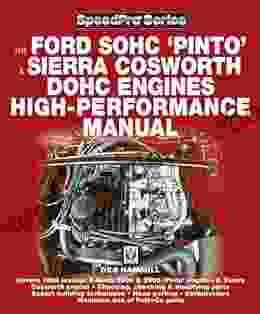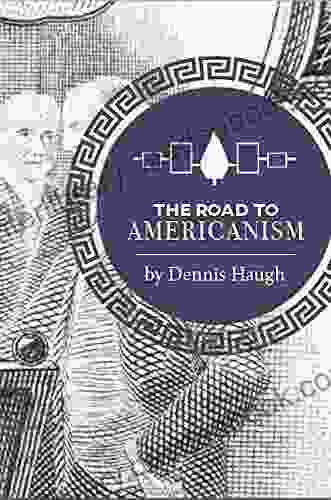Critical Political Economy of the Middle East and North Africa: Stanford Studies

The Middle East and North Africa (MENA) region is one of the most complex and dynamic in the world. It is a region of great historical significance, with a rich cultural heritage. However, it is also a region that has been plagued by conflict, poverty, and inequality.
4.8 out of 5
| Language | : | English |
| File size | : | 1450 KB |
| Text-to-Speech | : | Enabled |
| Screen Reader | : | Supported |
| Enhanced typesetting | : | Enabled |
| Word Wise | : | Enabled |
| Print length | : | 327 pages |
In recent years, there has been a growing interest in the critical political economy of the MENA region. This approach to studying the region seeks to understand the political and economic factors that have shaped its development. It also examines the ways in which these factors have impacted the lives of ordinary people.
Stanford University has been at the forefront of research on the critical political economy of the MENA region. Stanford scholars have conducted groundbreaking studies on a wide range of topics, including:
* The political economy of oil and gas * The role of the state in economic development * The impact of globalization on the region * The causes and consequences of poverty and inequality
The work of Stanford scholars has helped to deepen our understanding of the challenges facing the MENA region. It has also provided valuable insights into the prospects for future transformation.
Historical Development
The MENA region has a long and complex history. It is home to some of the world's oldest civilizations, including the ancient civilizations of Mesopotamia, Egypt, and Persia. The region has also been a crossroads for trade and commerce for centuries.
In the 19th century, the MENA region was colonized by European powers. This period of colonization had a profound impact on the region's economic and political development. The European powers imposed their own economic systems on the region and exploited its natural resources.
After World War II, the MENA region gained independence from European rule. However, the legacy of colonialism continues to shape the region's development. Many of the countries in the region are still struggling to overcome the economic and political challenges that were inherited from the colonial period.
Current Economic and Political Challenges
The MENA region faces a number of economic and political challenges. These challenges include:
* Poverty and inequality: Poverty and inequality are widespread in the MENA region. According to the World Bank, over 100 million people in the region live in poverty. Inequality is also a major problem, with the gap between the rich and the poor growing wider in recent years. * Unemployment: Unemployment is a major problem in the MENA region. The unemployment rate in the region is over 10%, and it is even higher among young people. * Political instability: The MENA region is a politically unstable region. There have been a number of wars and conflicts in the region in recent years, and many countries are still struggling to establish stable governments. * Corruption: Corruption is a major problem in the MENA region. Corruption undermines the rule of law and makes it difficult for businesses to operate.
These challenges are interconnected and they all contribute to the region's underdevelopment. In order to address these challenges, it is necessary to adopt a comprehensive approach that addresses the root causes of poverty, inequality, unemployment, and political instability.
Prospects for Future Transformation
The prospects for future transformation in the MENA region are uncertain. The region faces a number of challenges, but it also has a number of opportunities. The region is home to a young and growing population, and it has a number of natural resources. If the region can overcome its challenges and seize its opportunities, it has the potential to become a prosperous and stable region.
There are a number of things that can be done to improve the prospects for future transformation in the MENA region. These include:
* Investing in education: Education is essential for economic development. By investing in education, the MENA region can improve the skills of its workforce and increase its productivity. * Creating jobs: The MENA region needs to create more jobs for its growing population. This can be done by investing in infrastructure, developing new industries, and promoting entrepreneurship. * Promoting political stability: Political stability is essential for economic development. The MENA region needs to promote political stability by strengthening its institutions, promoting good governance, and resolving conflicts peacefully. * Fighting corruption: Corruption is a major obstacle to economic development. The MENA region needs to fight corruption by strengthening its anti-corruption laws, increasing transparency, and promoting accountability.
The MENA region is facing a number of challenges, but it also has a number of opportunities. By investing in education, creating jobs, promoting political stability, and fighting corruption, the region can improve the prospects for future transformation.
The critical political economy of the MENA region is a complex and challenging field of study. However, it is an important field because it can help us to understand the region's past, present, and future. The work of Stanford scholars has helped to deepen our understanding of the challenges facing the MENA region. It has also provided valuable insights into the prospects for future transformation.
4.8 out of 5
| Language | : | English |
| File size | : | 1450 KB |
| Text-to-Speech | : | Enabled |
| Screen Reader | : | Supported |
| Enhanced typesetting | : | Enabled |
| Word Wise | : | Enabled |
| Print length | : | 327 pages |
Do you want to contribute by writing guest posts on this blog?
Please contact us and send us a resume of previous articles that you have written.
 Chapter
Chapter Text
Text Story
Story Genre
Genre Paperback
Paperback Magazine
Magazine Newspaper
Newspaper Sentence
Sentence Bookmark
Bookmark Glossary
Glossary Foreword
Foreword Preface
Preface Synopsis
Synopsis Annotation
Annotation Scroll
Scroll Codex
Codex Library card
Library card Narrative
Narrative Autobiography
Autobiography Memoir
Memoir Reference
Reference Encyclopedia
Encyclopedia Dictionary
Dictionary Thesaurus
Thesaurus Narrator
Narrator Character
Character Resolution
Resolution Librarian
Librarian Card Catalog
Card Catalog Periodicals
Periodicals Study
Study Research
Research Reserve
Reserve Academic
Academic Study Group
Study Group Thesis
Thesis Dissertation
Dissertation Storytelling
Storytelling Theory
Theory Textbooks
Textbooks A Zavarelli
A Zavarelli Bhakti Vikasa Swami
Bhakti Vikasa Swami Gian Paolo Marcolongo
Gian Paolo Marcolongo Paul Leicester Ford
Paul Leicester Ford Karl Capita
Karl Capita Alyssa Bailey
Alyssa Bailey Emma Bamford
Emma Bamford D A Hickman
D A Hickman John Russell Rickford
John Russell Rickford Candi B
Candi B Todd Huizinga
Todd Huizinga A Michelle
A Michelle Mike Pinfold
Mike Pinfold Jane Kurtz
Jane Kurtz John James
John James Wayne Lemmons
Wayne Lemmons Theresa Ward
Theresa Ward Mark Lareau
Mark Lareau Sylvia Foster
Sylvia Foster Dave Courvoisier
Dave Courvoisier
Light bulbAdvertise smarter! Our strategic ad space ensures maximum exposure. Reserve your spot today!
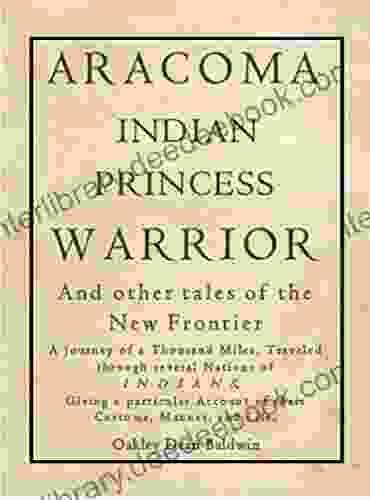
 Clarence MitchellAracoma Princess Oakley Dean Baldwin: A Native American Warrior and Educator
Clarence MitchellAracoma Princess Oakley Dean Baldwin: A Native American Warrior and Educator
 Stanley BellExploring the Historic and Vibrant 92 Acharnon Street in Athens: A Year-Long...
Stanley BellExploring the Historic and Vibrant 92 Acharnon Street in Athens: A Year-Long... Roy BellFollow ·6.2k
Roy BellFollow ·6.2k Paulo CoelhoFollow ·9.9k
Paulo CoelhoFollow ·9.9k Giovanni MitchellFollow ·16.1k
Giovanni MitchellFollow ·16.1k Chance FosterFollow ·19.6k
Chance FosterFollow ·19.6k John SteinbeckFollow ·13.2k
John SteinbeckFollow ·13.2k Julio CortázarFollow ·15.2k
Julio CortázarFollow ·15.2k Deacon BellFollow ·7.6k
Deacon BellFollow ·7.6k Mark TwainFollow ·10.8k
Mark TwainFollow ·10.8k

 Bo Cox
Bo CoxDiscover the Enchanting Allure of Collingwood, Ontario,...
Nestled amidst the breathtaking landscape of...

 Ralph Ellison
Ralph EllisonThe Street of Clocks Poems: A Poetic Journey Through Time
Welcome to The Street...
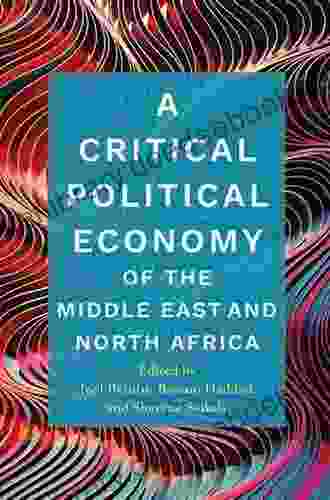
 Dwight Blair
Dwight BlairCritical Political Economy of the Middle East and North...
The Middle East and...

 Deion Simmons
Deion SimmonsPerfect Strategies For Painting Amazing Marine Creatures...
Gouache is a...
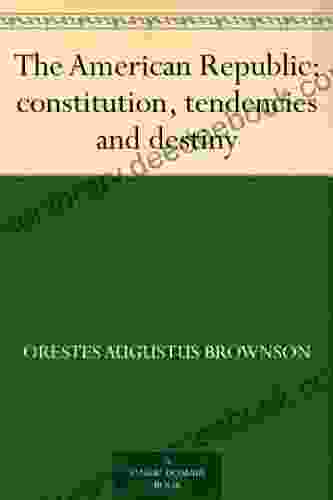
 Hugh Bell
Hugh BellThe American Republic: Constitution, Tendencies, and...
The American Republic,...
4.8 out of 5
| Language | : | English |
| File size | : | 1450 KB |
| Text-to-Speech | : | Enabled |
| Screen Reader | : | Supported |
| Enhanced typesetting | : | Enabled |
| Word Wise | : | Enabled |
| Print length | : | 327 pages |




